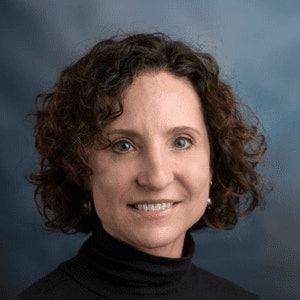College women majoring in STEM fields more frequently experience sexual assault than those not in STEM, a recent Georgia State University (GSU) study found. Dr. Laura Salazar
Dr. Laura Salazar
The study – published in the early online edition of the Journal of Interpersonal Violence – analyzed survey data from 318 undergraduate STEM majors at five U.S. higher ed institutions.
According to the study, women in gender-balanced STEM fields (chemistry, math and biology) reported the most sexual violence, nearly three times more rapes than in non-gender-balanced STEM fields and more than in predominantly male STEM disciplines (engineering, physics and computer science).
And for every one attempted rape for all other women, those in gender-balanced STEM fields faced 3.4 attempted rapes, the study found.
“Increasing the participation of women in STEM is essential to advancing gender equity, but our study suggests the need to consider additional targeted sexual violence prevention that goes beyond typical campus approaches,” said Dr. Dennis Reidy, lead author, associate professor in the Georgia State School of Public Health, and director for community engagement and outreach for the Center for Research on Interpersonal Violence.
Additionally, the findings are consistent with a “backlash” effect, where improvements in gender equality are related to increased violence against women, said Dr. Laura Salazar, study co-author and professor in the School of Public Health.
“We have to acknowledge first that there might be a problem, and that acknowledgement has to come from leadership,” Salazar said. “Professors, department chairs, deans and other institutional leaders can take action to promote equity for the women in their programs.”
To note, the study authors said that their study did not assess the relationship between women and their attackers, leaving it unclear who the perpetrators were and whether any specific conclusions about male colleagues can be drawn.
“This study demonstrates that the problem exists, but it doesn’t really explore the why. That’s really the next step in this line of research,” said Dr. Leah Daigle, co-author and professor in the Department of Criminal Justice and Criminology in the GSU Andrew Young School of Policy Studies. “If you see an equal number of women and men in your classes, you might think that, by definition, the women are being treated fairly,” she added. “But that’s not what our study shows. It should be a wake-up call for people to realize that even when people are not in the minority in a group, they can still be at risk for discrimination and harm.”






















